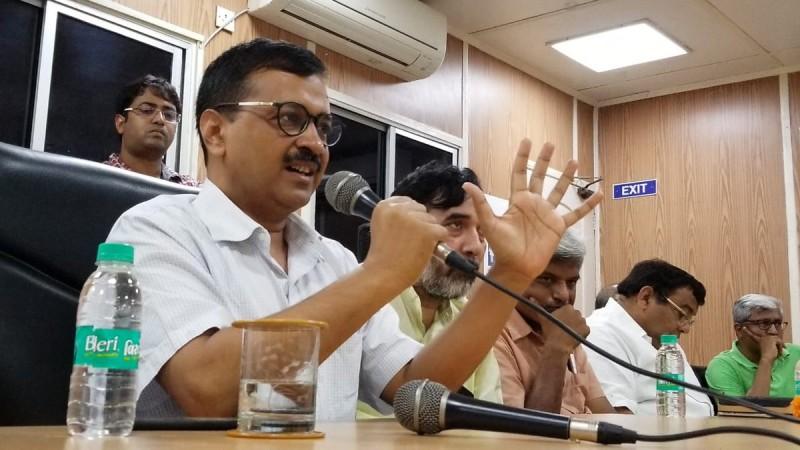
As pollution in India's capital hit "severe" on the air quality scale on Saturday, Delhi Chief Minister Arvind Kejriwal came under fire following reports he had left the city for an overseas family trip.
For a second year, the CM has likened Delhi to a "gas chamber" because of the pollution.
The seasonal burning of crop stubble and smoke from fireworks let off to celebrate Diwali on Nov. 7 have aggravated already high smog levels in the past few days from vehicle emissions, industrial gases and construction work.
Local television news channels said Kejriwal had left the country on a private family trip to Dubai, triggering a backlash on social media and finger pointing on Twitter by the Delhi arm of India's governing Bharatiya Janata Party (BJP), the party of Prime Minister Narendra Modi.
"Arvind Kejriwal cares about his family so much that he urgently booked tickets and ran away to Dubai with them as soon as Delhi started choking with pollution," said one Twitter user.
A member of Kejriwal's party, the Aam Aadmi (Common Man) Party (AAP), told Reuters that the chief minister was not in the city. He declined to elaborate or be identified because he is not authorized to speak to the media.
A city government spokesman did not respond to telephone calls seeking comment.
Neither the governing party at federal level nor the main opposition is in power in the capital, giving them little incentive to co-operate with city authorities.
Environmental activists say residents need to be more vocal about holding political leaders to account over the pollution.
"Public pressure has to be much sharper and demand compliance. Directions, policies have been issued but a stringent implementation is needed," said Anumita Roychowdhury, an executive director at the Centre for Science and Environment, a think-tank.
Still, there is little sign in Delhi that residents are doing much to protect themselves from the smog. Activists say the apparent lack of concern about the pollution gives federal and local politicians the cover they need for failing to adequately address the problem.
Environment Pollution (Prevention and Control) Authority has banned all construction activity and ordered the use of sprinklers in the city until Nov. 10, among other measures. On Saturday, it indicated the measures would be extended until Monday.
The city government has banned heavy vehicles from entering Delhi until Sunday and it was not clear if that order would be extended. It had also urged drivers to avoid using private diesel-powered vehicles until Saturday, but there has been no ban.
Measures of tiny poisonous particulate matter, or PM 2.5 particles less than 2.5 microns in diameter, reached an average of 401 across Delhi at 1600 IST (1030 GMT), the Central Pollution Control Board (CPCB) said.
That touches the "severe" category between 401-500, defined by the CPCB as the bad air that can seriously impact those with existing health conditions, such as asthma, and can affect healthy people.
The capital's pollution hit emergency levels on Thursday, according to the U.S. embassy. It followed Wednesday's Diwali celebrations when revellers let off fireworks.
![[Representational image] Several youngsters participated in the marathon as blanket of smog covered Delhi on Sunday delhi pollution](https://data1.ibtimes.co.in/en/full/625655/delhi-pollution.jpg?h=450&l=50&t=40)

















